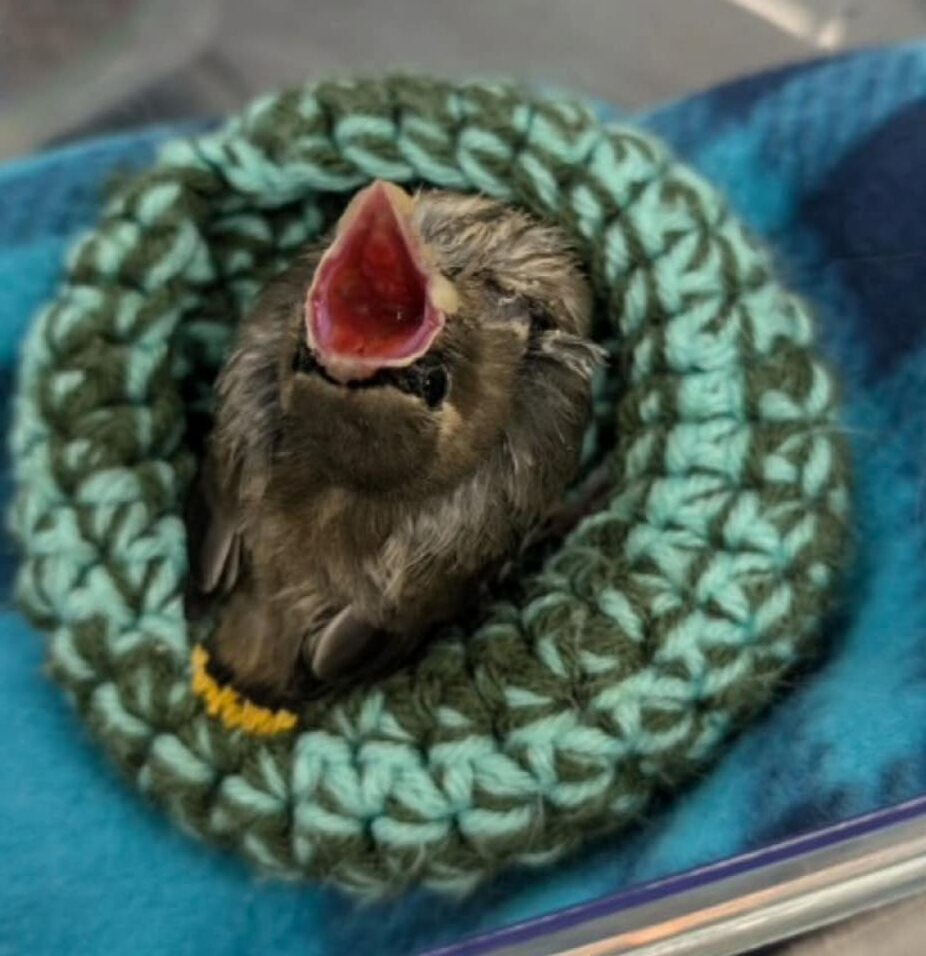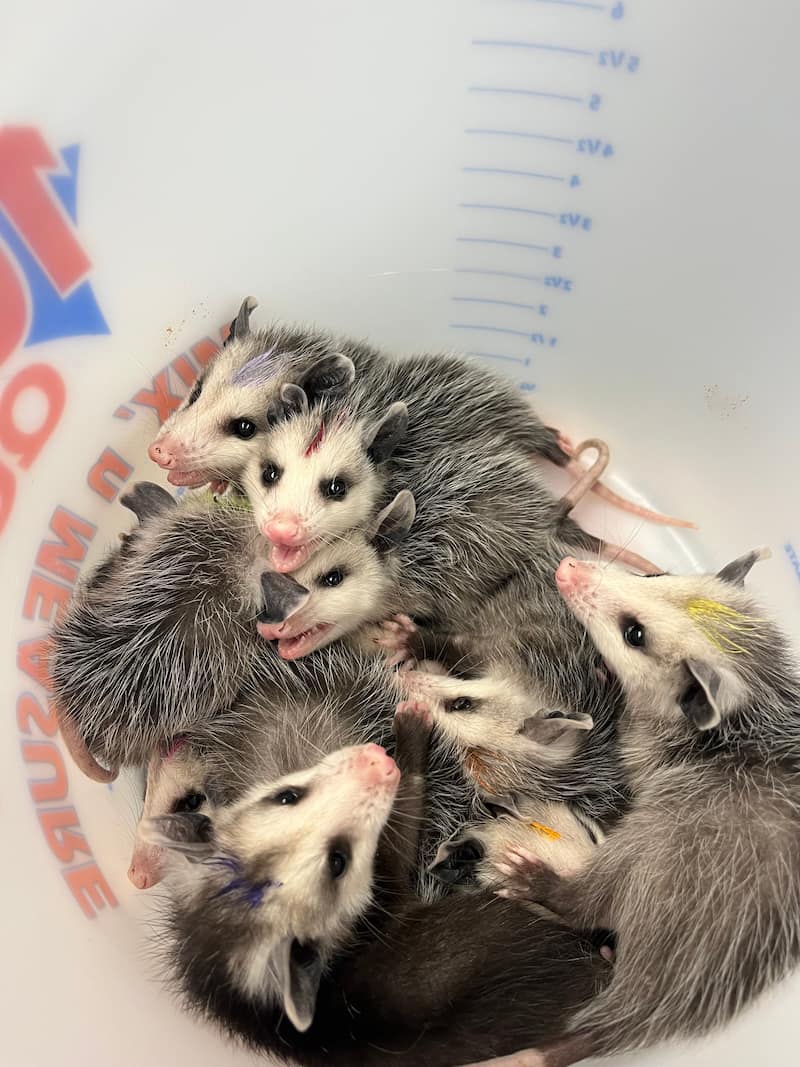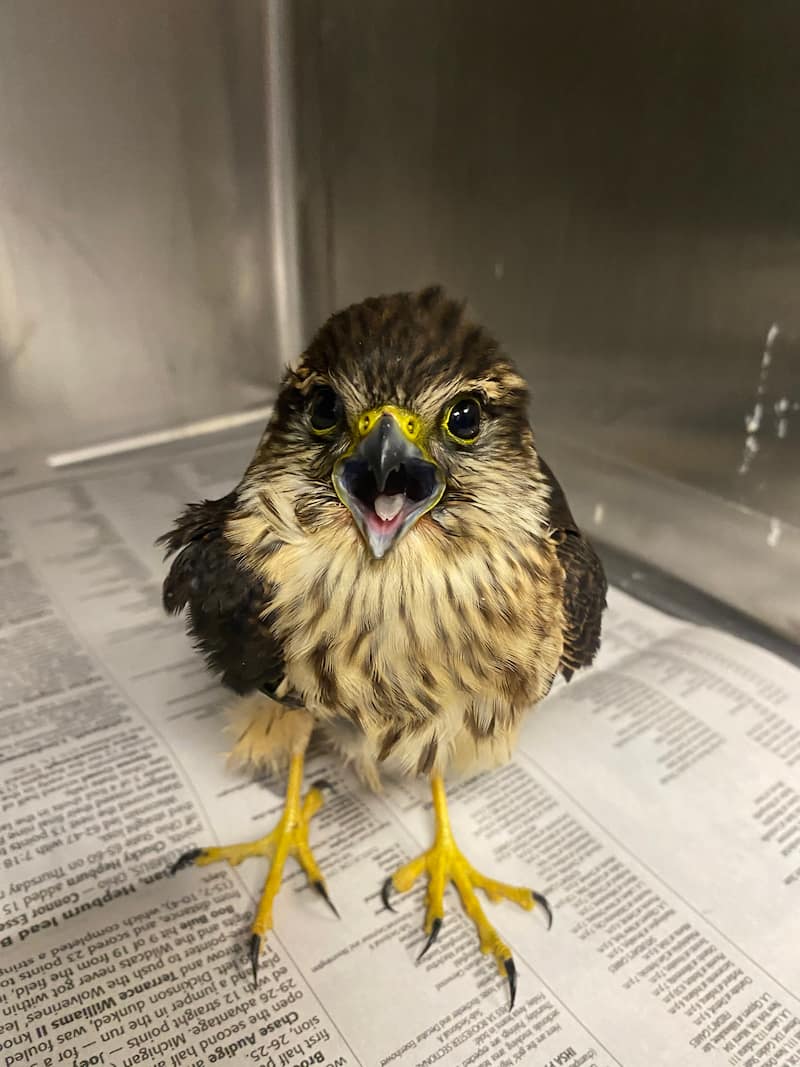
As you all may know, class is back in session at the University of Illinois and with that, our student volunteers are back and ready to help! The clinic, however, looks very different for our volunteers this school year. In the past, we have always allowed any number of students to be a part of our team, but due to COVID, we have had to limit our volunteer capacity. This is to ensure the safety and well being of our clinicians, students, and patients.
Our volunteers this year consist of 6 teams of 12 students, each led by four second and third-year team leaders. Within each team are students from the first, second, and third years of the veterinary curriculum, as well as a very select few of our past undergraduate volunteers. All areas of the clinic are being sanitized multiple times daily, in order to reduce transmission of any germs present. All members of the Wildlife Medical Clinic must wear a face mask at all times when in the building and a face shield is worn in addition any time we are working within six feet of another person.
Our teams of students operate in the clinic on a 6-day rotation, with one team taking care of all patients in the clinic on their specific day. This allows our students to still receive the hands-on learning opportunities they normally would, while preventing as much co-mingling between our students as possible. Each wildlife patient is assigned a team leader or third year student as their primary case manager, with another team member being their secondary case manager. These case m
anagers are in charge of making all medical decisions for their patient with the help of the student clinic managers, house officers, and faculty. Our case managers each depend on medical records and discussions with classmates to make decisions on their cases when they are not physically in the clinic, underscoring the importance of clear communication and enhancing our volunteers’ opportunities to improve their skills in this arena. So far, our students have already released an adult Virginia opossum, removed lead from the gastrointestinal system of a trumpeter swan, and cared for MANY orphans including squirrels, raccoons, opossums, a northern cardinal, and a least weasel.

While how the flow in our clinic has changed, we are proud of our ability to adapt, grow, and persevere despite these challenges. Our students are excelling under these new conditions and we could not have asked for a more resilient group to drive our success with our core missions of wildlife care, education, and conservation. We look forward to a great year ahead and can not wait to share our adventures with you on our Facebook page and website!




